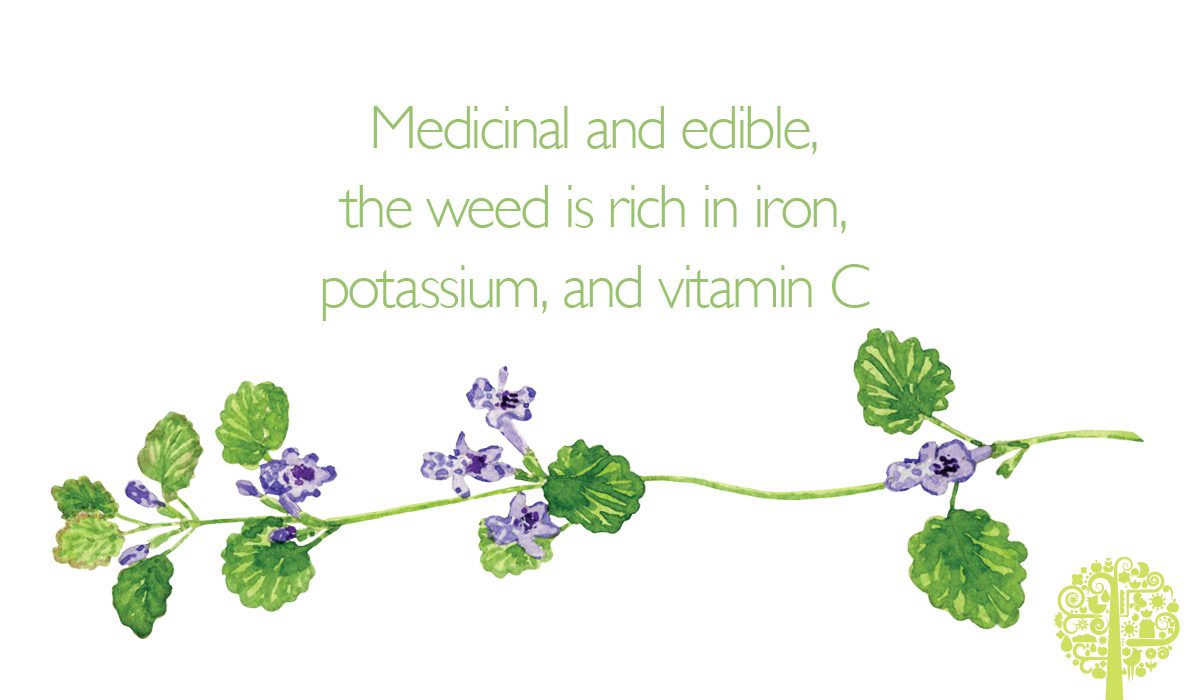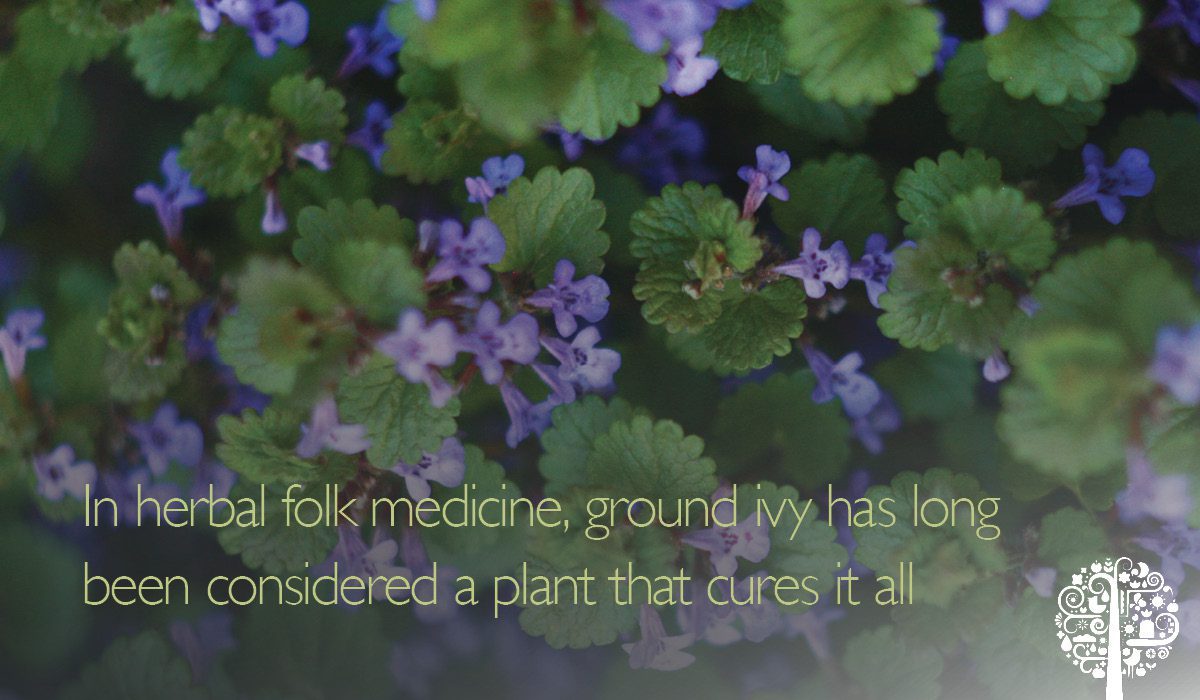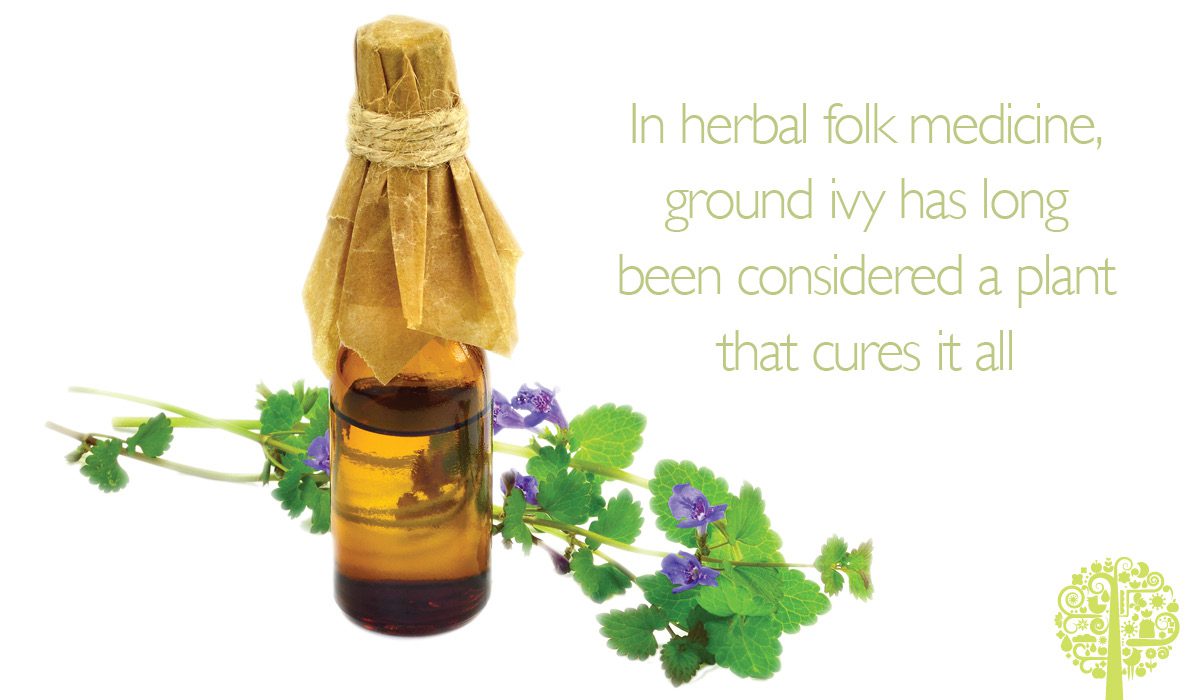Ground Ivy: Medicine Beneath Your Feet
Ground ivy is a low-growing plant that covers the ground like a carpet. For that reason, it often doesn’t catch the attention of gardeners until it becomes invasive and takes over an entire space! If there’s partial shade and fertile ground, the low-growing evergreen will spread abundantly.
A distant cousin of mint and lemon balm, Glechoma hederacea has a distinctive aroma of menthol; once you know it, you’ll never forget it! The scent is an excellent way to identify the medicinal weed correctly. Pollinators are attracted to the plant’s fragrant purple flowers, making it an excellent groundcover for your property!

Ground ivy originally came to America via European settlers. Medicinal and edible, the weed is rich in iron, potassium, and vitamin C. Ground ivy has many culinary uses. Before hops became popular, the flowers and leaves were used to flavour and preserve beer and wine. Also named Creeping Charlie, ground ivy can be used as an aromatic herb to add punch to omelettes, soups, salads, and tea. The bitter greens can be cooked and eaten like spinach.
Bold Medicinal Qualities
In herbal folk medicine, ground ivy has long been considered a plant that cures it all. It has anti-inflammatory properties and serves as a decongestant, stimulant, tonic, expectorant, digestive, diuretic, and anthelmintic (destructive to parasitic worms). Ground ivy contains tannins, essential oil, flavonoids, sesquiterpenes, ursolic acid and marrubium. The leaves and the flowers are the medicinal parts of the plant. Harvest them from early spring to late fall. While most herbal recipes call for fresh ground ivy, dry leaves and flowers can also be used.

Ground ivy is especially useful for respiratory issues. A natural decongestant, it helps dry excess mucus in the nose, throat, and chest. Taken as a hot tea, it relieves cold symptoms, catarrh, congestive headaches, coughs, and bronchial phlegm. It also helps restore the respiratory mucus membrane and ease inflammation.
Creeping Charlie is an excellent digestive aid and, beyond stimulating our appetites, helps with the good functioning of the stomach. A medicinal tea treats gastritis and acid indigestion. It also eases bloating and nausea. The humble weed can also help rebalance metabolism.
Ground ivy’s antiseptic and diuretic properties are very beneficial to the urinary tract. The plant can reduce fluid retention and clear toxins out of the body. It can also help treat urinary tract infections and cystitis.

Use ground ivy as a compress or poultice for skin conditions. Applied topically, it cleans sores, abscesses, and boils and helps treat poorly healing wounds and ulcers. The fresh leaf can be bruised and used to ease discomfort caused by cuts and insect bites. You can even add ground ivy to your beauty routine! A herbal infusion will not only remove excess facial oil and close the pores but can help sore, black, and puffy eyes.
Integrating Ground Ivy Into Our Daily Care Regiments
Rejuvenating Bath
Traditionally, fresh ground ivy leaves and flowers were added to a warm bath to help soothe back pain, the skin, muscles, and joints. Add three cups of fresh herbs to five litres of simmering water. Turn off the heat, cover, and let sit for at least 30 minutes. Strain the plant material and pour the infused water into the bathtub. Soak for at least 20 minutes to reap the benefits. The mildly sedative property of the plant promotes calm and will help you relax.
Precious Oil
An oil infusion of the aerial parts is made for bruises, wounds, rheumatism, and muscle soreness in folk herbal medicine. This herb transformation is easy to make and provides medicine year-round. Harvest the leaves and flowers on a dry, sunny day and let them wilt on a dishcloth for a couple of hours. Gently pack into a jar that is sized accordingly to the amount of plant material you have. Cover the ivy with organic olive oil, and remove the air bubbles with a wooden spoon. If the plant material is not completely covered with oil, it will spoil. Cap the jar with cheesecloth and secure it with an elastic band. Leave in a dark place for four weeks and then filter the oil. Transfer the medicine to a properly labelled bottle. The oil should be good for a year or so; apply and massage when needed.

The next time you go for a walk in the woods or your garden, remember to look attentively under your feet! There’s a good chance ground ivy will be there. Even if it may be humble in appearance, it has plenty of benefits to share!
Disclaimer:
Although considered a very safe herb, pregnant and breastfeeding women should avoid using ground ivy as there is not enough research on possible side effects. The plant is also not recommended for people taking blood thinner medications. Consult your health care practitioner before using ground ivy as herbal medicine.




